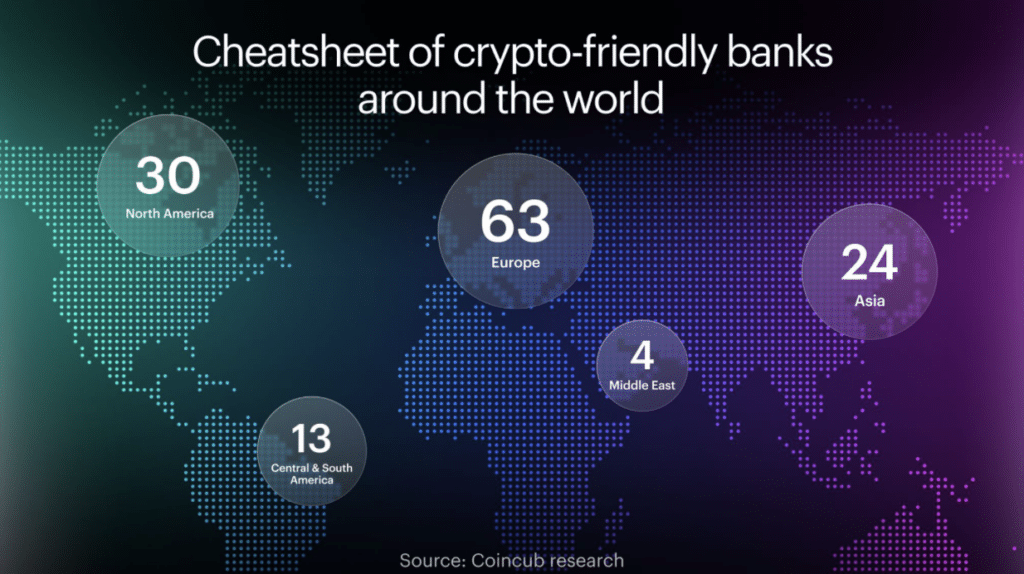Europe dominates crypto banking with 63 providers

Over 135 traditional financial institutions are providing crypto banking support as blockchain assets have recently experienced rapid adoption and mainstream press.
According to a joint report from Finery Markets and Coincub, analysts noticed a sharp increase in rails between banks and digital assets, with more money houses tapping decentralized finance utility.
The phenomenon was spotted in regions worldwide, but Europe dominated the sector. At the end of this year’s first quarter, more than 63 institutions across European markets offered crypto banking services.
Europe has become a world leader in blockchain oversight by introducing its Markets in Crypto Assets Regulation (MiCA) and other rules, such as stablecoin policies, to encourage innovation and maintain investor safety.
Konstantin Shulga, co-founder and CEO of Finery Markets, remarked that a renewed spate of digital asset interest sweeping Europe and the globe seems to be the main driving force connecting blockchain’s economy to traditional finance. However, Shulga cited challenges around accessible investment vehicles and crypto products.
“We are seeing a growing interest in capitalizing on this momentum. Still, there is also a demand for more institutionalized and matured services from crypto-native infrastructure.”
Konstantin Shulga, Finery markets co-founder and CEO
Other crypto banking hot zones
After Europe, North America showed demand for crypto banking, with at least 30 banks providing facilities linked to the nascent industry. North America was followed by 24 Asian banks and some 13 traditional financial institutions across South and Central America.
The report from Coincub and Finery confirmed that Europe leads the way in several crypto sectors despite billions in U.S. trading volume domiciled in spot Bitcoin (BTC) ETFs.
In addition to crypto banking dominance, Europe is at the forefront of Bitcoin halving Google search queries. Nine European cities comprised the top 10 areas with the most interest in the forthcoming code change, which will cut BTC block mining revenue by 50%, per crypto.news.


















